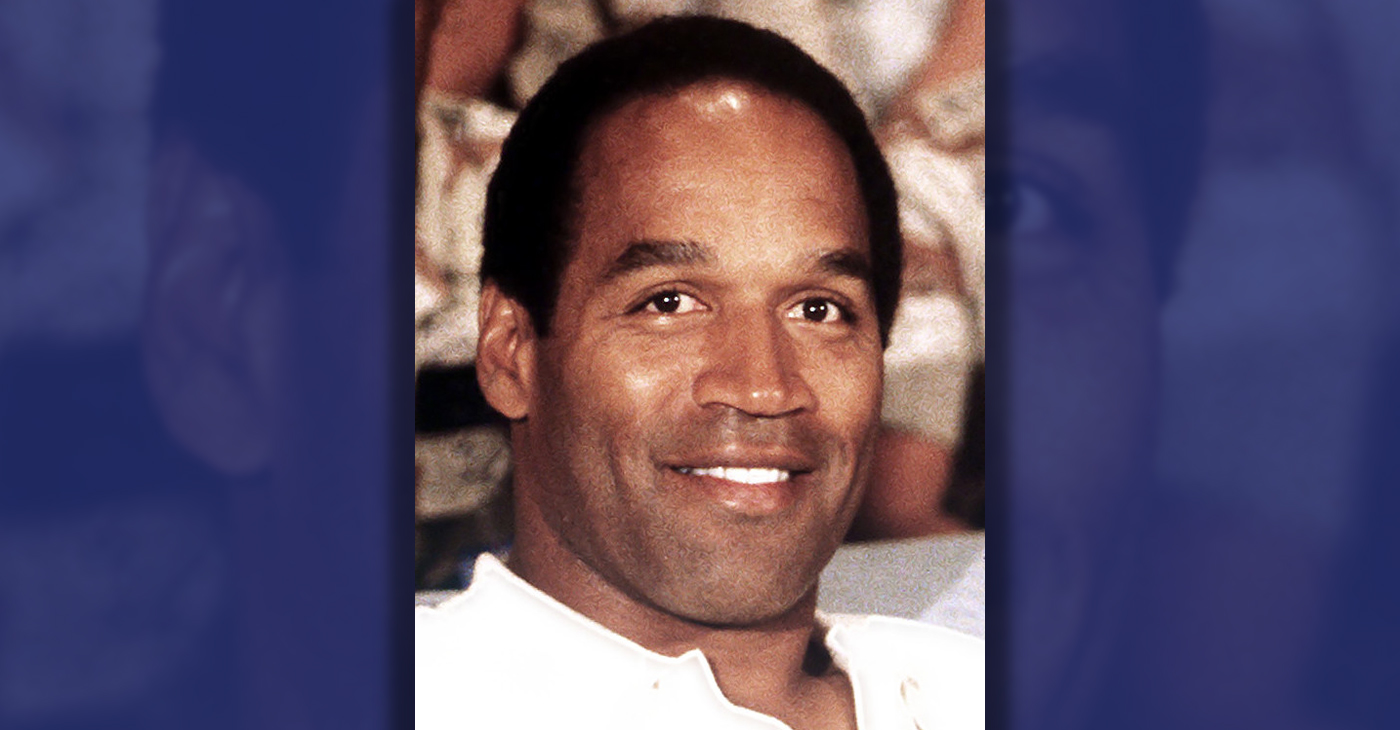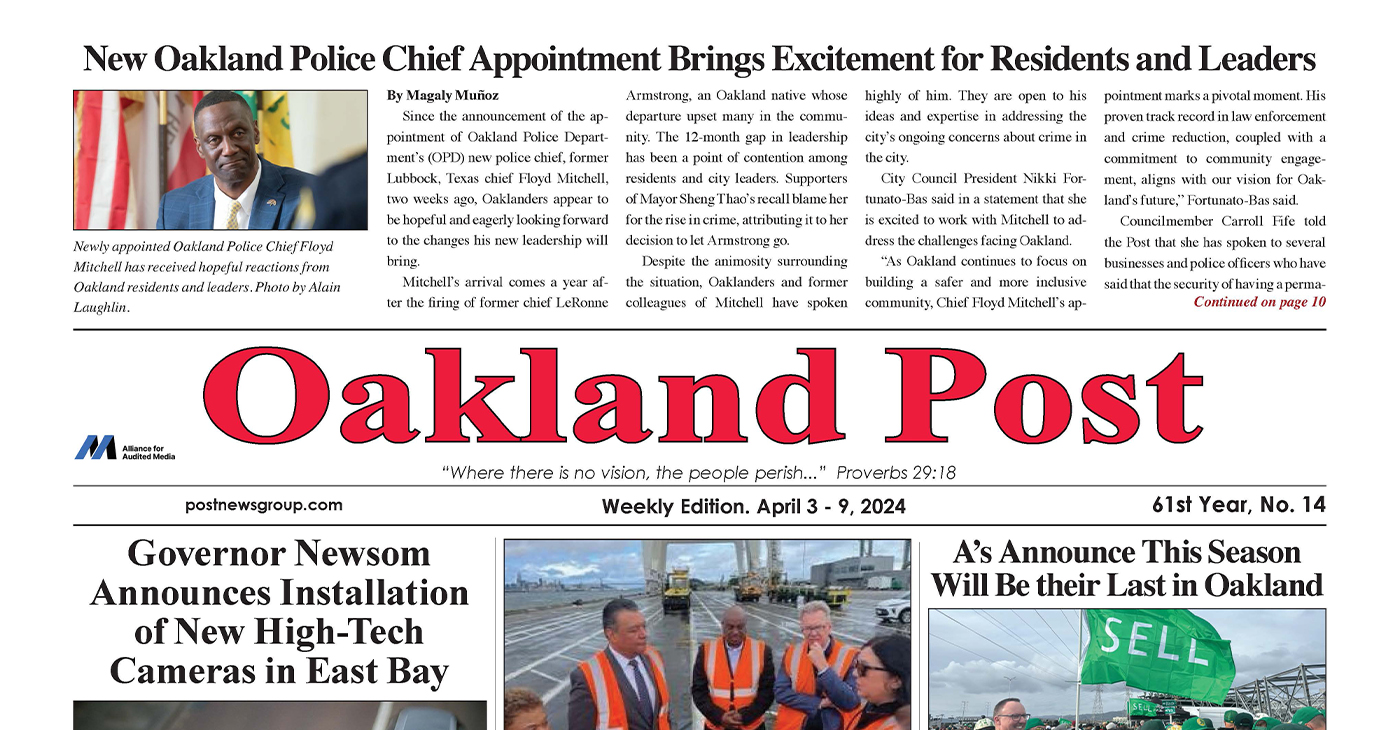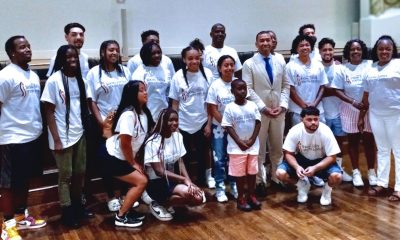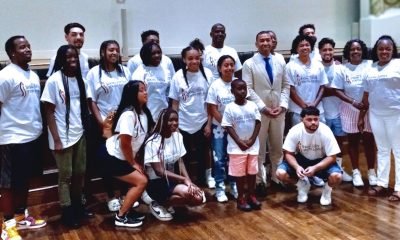Entertainment
The Biggest Problem with ‘Selma’ Has Nothing to Do with LBJ or the Oscars

This photo released by Paramount Pictures shows, David Oyelowo, center, as Martin Luther King, Jr. and Carmen Ejogo, right, as Coretta Scott King in the film, “Selma,” from Paramount Pictures and Pathé. (AP Photo/Paramount Pictures, Atsushi Nishijima)
(The Washington Post) – “Selma” delivers a powerful dramatization of the bloody civil rights march in Alabama that led to the passage of the Voting Rights Act in 1965. The depiction has received an Oscar nomination for Best Picture, but has been criticized for various deviations from historical fact. Supporters of President Lyndon Johnson have decried his portrayal as an antagonist who only reluctantly supported the Voting Rights Act after attempting to obstruct the Selma effort. Even George Wallace Jr. has spoken out, insisting that his father, the former governor of Alabama, never advocated violence against the marchers (a contention difficult to believe given the level of brutality recorded that day). But all the criticism has overlooked the particularly troubling mischaracterization of one of the movement’s most critical players – Coretta Scott King. The movie presents a Coretta who exists under a fog of fear as she endures the terror of Selma. It portrays a Coretta who blames her husband for leaving the family during his trips to lead the movement. It shows a Coretta who timidly acquiesces to the charges that her husband dishonored their marriage vows and tearfully asks if he loves his mistresses. That Coretta is pure Hollywood fiction.
The film’s misrepresentation of Coretta continues a disservice done to her life and accomplishments in many accounts of the Civil Rights era. She was not a tormented victim. She was more than an accessory to her iconic husband’s story. Before Coretta met Martin, she was a student activist in the peace movement at Antioch College. She protested the Vietnam War in the early 1960s, before Martin took up the controversial stance. For example, in 1965, she addressed a major peace rally against the war in Madison Square Garden, the only woman to do so. In 1962, she went to the Disarmament Conference in Switzerland as a delegate of Women Strike for Peace, a group formed by Bella Abzug. And not only did she march with Martin in Selma, she later moved her children into a squalid Chicago tenement to dramatize the pathos of poverty. Even after Martin was assassinated in 1968, she remained a brave activist in her own right. She was an outspoken advocate for gay and lesbian rights, fearlessly defying many Christian leaders.
Entertainment
O.J. Simpson, 76, Dies of Prostate Cancer
Orenthal James (O.J.) Simpson, who rose to fame as a college football player who went on to the NFL and parlayed his talents in acting and sportscasting, succumbed to prostate cancer on April 10, his family announced.

By Post Staff
Orenthal James (O.J.) Simpson, who rose to fame as a college football player who went on to the NFL and parlayed his talents in acting and sportscasting, succumbed to prostate cancer on April 10, his family announced.
Born and raised in San Francisco, the Galileo High School graduate was recruited by the University of Southern California after he was on a winning Junior College All-American team.
At USC, he gained wide acclaim as a running back leading to him becoming the No. 1 pick in the AFL-NFL draft in 1969 and joining the Buffalo Bills, where he had demanded – and received — the largest contract in professional sports history: $650,000 over five years. In 1978, the Bills traded Simpson to his hometown team, the San Francisco 49ers, retiring from the game in 1979.
Simpson’s acting career had begun before his pro football career with small parts in 1960s TV (“Dragnet”) before “Roots” and film (“The Klansman,” “The Towering Inferno,” Capricorn One”).
He was also a commentator for “Monday Night Football,” and “The NFL on NBC,” and in the mid-1970s Simpson’s good looks and amiability made him, according to People magazine, “the first b\Black athlete to become a bona fide lovable media superstar.”
The Hertz rent-a-car commercials raised his recognition factor while raising Hertz’s profit by than 50%, making him critical to the company’s bottom line.
It could be said that even more than his success as a football star, the commercials of his running through airports endeared him to the Black community at a time when it was still unusual for a Black person to represent a national, mainstream company.
He remained on Hertz team into the 1990s while also getting income endorsing Pioneer Chicken, Honey Baked Ham and Calistoga water company products and running O.J. Simpson Enterprises, which owned hotels and restaurants.
He married childhood sweetheart Marguerite Whitley when he was 19 and became the father of three children. Before he divorced in 1979, he met waitress and beauty queen Nicole Brown, who he would marry in 1985. A stormy relationship before, during and after their marriage ended, it would lead to a highway car chase as police sought to arrest Simpson for the murder by stabbing of Brown and her friend Ron Goldman in 1994.
The pursuit, arrest, and trial of Simpson were among the most widely publicized events in American history, Wikipedia reported.
Characterized as the “Trial of the Century,” he was acquitted by a jury in 1995 but found liable in the amount of $33 million in a civil action filed by the victims’ families three years later.
Simpson would be ensnared in the criminal justice system 12 years later when he was arrested after forcing his way into a Las Vegas hotel room to recover sports memorabilia he believed belonged to him.
In 2008, he received a sentence of 33 years and was paroled nine years later in 2017.
When his death was announced, Simpson’s accomplishments and downfalls were acknowledged.
Sports analyst Christine Brennan said: “… Even if you didn’t love football, you knew O.J. because of his ability to transcend sports and of course become the businessman and the pitchman that he was.
“And then the trial, and the civil trial, the civil case he lost, and the fall from grace that was extraordinary and well-deserved, absolutely self-induced, and a man that would never be seen the same again,” she added.
“OJ Simpson played an important role in exposing the racial divisions in America,” attorney Alan Dershowitz, an adviser on Simpson’s legal “dream team” told the Associated Press by telephone. “His trial also exposed police corruption among some officials in the Los Angeles Police Department. He will leave a mixed legacy. Great athlete. Many people think he was guilty. Some think he was innocent.”
“Cookie and I are praying for O.J. Simpson’s children … and his grandchildren following his passing. I know this is a difficult time,” Magic Johnson said on X.
“I feel that the system failed Nicole Brown Simpson and failed battered women everywhere,” attorney Gloria Allred, who once represented Nicole’s family, told ABC News. “I don’t mourn for O.J. Simpson. I do mourn for Nicole Brown Simpson and her family, and they should be remembered.”
Simpson was diagnosed with prostate cancer about a year ago and was undergoing chemotherapy treatment, according to Pro Football Hall of Fame President Jim Porter. He died in his Las Vegas, Nevada, home with his family at his side.
He is survived by four children: Arnelle and Jason from his first marriage and Sydney and Justin from his second marriage. He was predeceased son, Aaren, who drowned in a family swimming pool in 1979.
Sources for this report include Wikipedia, ABC News, Associated Press, and X.
Activism
Oakland Post: Week of April 10 – 16, 2024
The printed Weekly Edition of the Oakland Post: Week of April 10 – 16, 2024

To enlarge your view of this issue, use the slider, magnifying glass icon or full page icon in the lower right corner of the browser window. ![]()
Activism
Oakland Post: Week of April 3 – 6, 2024
The printed Weekly Edition of the Oakland Post: Week of April 3 – 6, 2024

To enlarge your view of this issue, use the slider, magnifying glass icon or full page icon in the lower right corner of the browser window. ![]()
-

 Activism4 weeks ago
Activism4 weeks agoOakland Post: Week of March 20 – 26, 2024
-

 #NNPA BlackPress3 weeks ago
#NNPA BlackPress3 weeks agoCOMMENTARY: D.C. Crime Bill Fails to Address Root Causes of Violence and Incarceration
-

 #NNPA BlackPress3 weeks ago
#NNPA BlackPress3 weeks agoMayor, City Council President React to May 31 Closing of Birmingham-Southern College
-

 #NNPA BlackPress3 weeks ago
#NNPA BlackPress3 weeks agoFrom Raids to Revelations: The Dark Turn in Sean ‘Diddy’ Combs’ Saga
-

 #NNPA BlackPress3 weeks ago
#NNPA BlackPress3 weeks agoCOMMENTARY: Lady Day and The Lights!
-

 #NNPA BlackPress3 weeks ago
#NNPA BlackPress3 weeks agoBaltimore Key Bridge Catastrophe: A City’s Heartbreak and a Nation’s Alarm
-

 #NNPA BlackPress3 weeks ago
#NNPA BlackPress3 weeks agoBaltimore’s Key Bridge Struck by Ship, Collapses into Water
-

 Activism3 weeks ago
Activism3 weeks agoOakland Post: Week of March 27 – April 2, 2024




















































